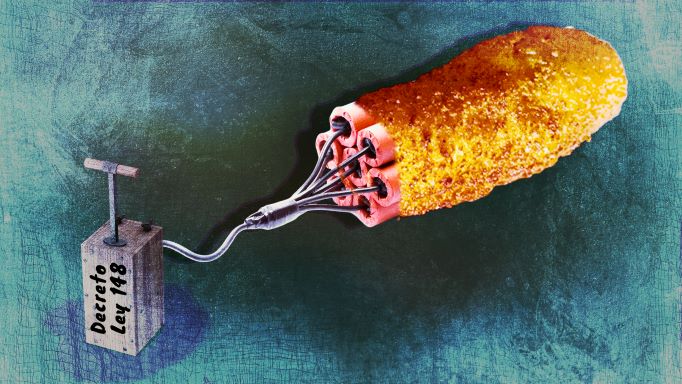The phrases “food sovereignty” and “food and nutrition security” have become the regime's new mantras to distract Cubans. It continues to employ them in its speeches, and they are present in at least two recently approved laws, and when celebrating the 5th anniversary of the Protein Plants and Bionatural Products Research Center, which promotes Fidel Castro's projects, Prime Minister Manuel Marrero stated, on December 20, that the center would contribute to achieving the aforementioned sovereignty and security.
Since 2020 Cuba has had a Food Sovereignty and Nutrition Education Plan, approved by the Council of Ministers as part of its Food Policy. Two years later, last May, the National Assembly of Popular Power (ANPP) approved Law 148 on Food Sovereignty and Food and Nutrition Security, which came into force on October 28.
The Cuban government has the support of the United Nations Food and Agriculture Organization (FAO), according to official media.
Food sovereignty is the ability to produce food in a sustainable way, and when a population has access to quality food, freeing it from having to import products.
If it is about reducing imports, the Cuban regime is an overachiever: the purchases of chicken from the United States fell last October by over a third. But that decline was not due to an increase in domestic production, as demonstrated by the enormous lines that Cubans have to stand in to acquire the product.
Pork production also fell dramatically. In November the state-run media outlet Escambray acknowledged that production had hit historic lows in Sancti Spíritus. From once being Cuba's national mammal, pigs have become the product most imported from Spain. Ordinary Cubans lack easy access to pork; to enjoy the meat to celebrate New Year's they had to wait in line for days and check their places every four or five hours.
Given its inability to increase production, the regime extended its lifting of tariffs on the importation of food, as well as medicines and toiletries, until the end of June, 2023. In this way, Cuban emigrees, and those who reside on the island but travel abroad, bring to the island what the regime fails to produce inside the country.
While the Cuban regime talks about food sovereignty, it depends on donations to feed its citizens, which it just barely manages to do. On the same day that Marrero Cruz celebrated Fidel Castro's “protein plants,” Prensa Latina reported that Vietnamese businessmen would be sending a donation of 7,500 tons of rice to Cuba.
What have been said center’s result in the five years since its foundation?
Nothing. This is what can be deduced from Cubadebate's communiqué, which only cites "challenges," among them, contributing to the achievement of the vaunted food sovereignty.
That this much-touted sovereignty is a chimera is a reality admitted by the Government. Miguel Díaz-Canel himself acknowledged in a speech before the National Assembly last December that Cuba has a Food Sovereignty Law, but there is no food. At that time, the Assembly was about to approve the Livestock Promotion Law (which also cites the achievement of food sovereignty among its aims), but, as the leader had to admit, there is no livestock. He also admitted the existence of a fishing law, when there is no fish.
The Food Sovereignty Act is, in fact, enshrined in the Constitution. Article 77 states that "everyone has the right to healthy and adequate food. The State creates the conditions to strengthen food security for the entire population," and the following one recognizes the people's right to "consume quality goods and services that do not threaten their health, and accurate and truthful information about them, as well equitable and dignified treatment in accordance with the law."
If the Cubans who spend hours waiting in line to eat poorly spent part of that time reading the Constitution, they would have to assume that the aforementioned articles were a bad joke. The reality is that, in addition to the shortages, astronomical prices and the penury that condemns them to lines for just a few modules, or a piece of meat, there is the deplorable quality of the food that the State often sells to the population.
Social media abounds with complaints about this. Food sold at state-run establishments has even resulted in injuries, as evidenced by burns from "explosive" croquettes.
Cubans, however, do not have to settle for complaining on social media or in the independent or state-run press. As reflected in an analysis by DIARIO DE CUBA last November, Instruction No. 3 of 2019 of the Ministry of Internal Trade, and the Criminal Code that came into force on December 1, allow citizens to engage in certain actions to demand their rights, including presenting complaints.
But as long as Cubans remain passive in the face of violations of their rights as consumers, and of all their rights, in general, all these laws will be as useless as that governing Food Sovereignty and Food and Nutrition Security, as the regime is not interested in them doing else than furnishing it with a facade and continuing to distract the population.
